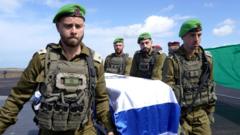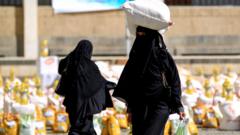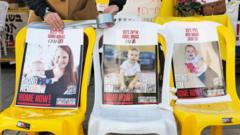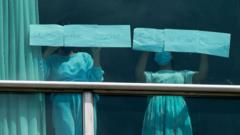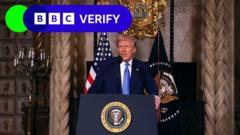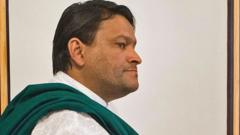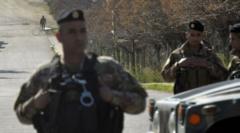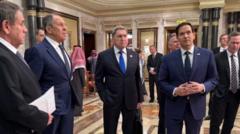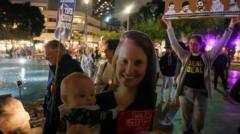The Congo River Alliance, which includes the M23 rebels, has called for this pause in hostilities as civilian casualties mount and calls for international intervention grow.
Rebels in DR Congo Announce Ceasefire Amid Ongoing Conflict
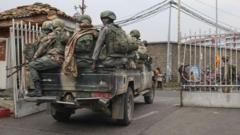
Rebels in DR Congo Announce Ceasefire Amid Ongoing Conflict
Rebel groups in eastern Democratic Republic of Congo have declared a ceasefire aimed at addressing humanitarian concerns.
The alliance of rebel groups in eastern Democratic Republic of Congo has announced a humanitarian ceasefire set to begin on Tuesday. This decision comes as the rebel coalition, which includes the Rwanda-supported M23 faction, faces growing backlash over its territorial advances in the region. The group cites "humanitarian reasons" for its ceasefire, which follows a brutal conflict that has resulted in at least 900 deaths and 2,880 injuries in the vicinity of Goma, the largest city in eastern DR Congo, recently overtaken by rebel forces.
The G7 nations and the European Union have condemned the ongoing offensives by these rebel groups, viewing them as a serious violation of the sovereign rights of the Democratic Republic of Congo. In its defense, the Congo River Alliance has accused the Congolese military of indiscriminately attacking civilian populations using airstrikes against rebel-held areas. The alliance maintains it has no intentions of capturing additional territory, contrary to previous statements in which territorial expansion was implied.
Displacement remains a critical issue, with the UN refugee agency reporting that over 400,000 people have been uprooted since the beginning of 2025, in a conflict that has persisted for over three years. Rwandan President Paul Kagame, while commenting on his country's involvement, has evaded direct acknowledgment of Rwandan troop presence but emphasized Rwanda's interest in ensuring national security concerning its neighbor.
Human rights advocates are pushing for increased international pressure on Rwanda to withdraw its support for the rebel forces. Patrick Muyaya, the communications minister for DR Congo, has urged the global community to impose sanctions on Rwanda, emphasizing that such measures are vital for maintaining peace in the region.
Both Congolese and Rwandan leaders are slated to attend a regional peace summit in Tanzania on Friday, with hopes pinned on the possibility of negotiations. However, given the protracted history of conflict between the two nations, any discussions could be protracted and complex, particularly if previous dialogues dissolve as they have in the past months.
The G7 nations and the European Union have condemned the ongoing offensives by these rebel groups, viewing them as a serious violation of the sovereign rights of the Democratic Republic of Congo. In its defense, the Congo River Alliance has accused the Congolese military of indiscriminately attacking civilian populations using airstrikes against rebel-held areas. The alliance maintains it has no intentions of capturing additional territory, contrary to previous statements in which territorial expansion was implied.
Displacement remains a critical issue, with the UN refugee agency reporting that over 400,000 people have been uprooted since the beginning of 2025, in a conflict that has persisted for over three years. Rwandan President Paul Kagame, while commenting on his country's involvement, has evaded direct acknowledgment of Rwandan troop presence but emphasized Rwanda's interest in ensuring national security concerning its neighbor.
Human rights advocates are pushing for increased international pressure on Rwanda to withdraw its support for the rebel forces. Patrick Muyaya, the communications minister for DR Congo, has urged the global community to impose sanctions on Rwanda, emphasizing that such measures are vital for maintaining peace in the region.
Both Congolese and Rwandan leaders are slated to attend a regional peace summit in Tanzania on Friday, with hopes pinned on the possibility of negotiations. However, given the protracted history of conflict between the two nations, any discussions could be protracted and complex, particularly if previous dialogues dissolve as they have in the past months.


